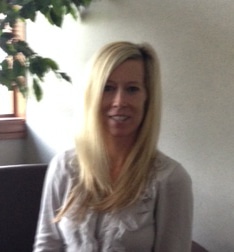
The topic of child sexual abuse can be difficult to broach, but psychologists advise parents to continue addressing the issue after the fact. If the abuse is ignored or swept under the rug, psychologists warn it could damage the child victim’s development.
Trauma sparks a certain physiological response in victims. Adrenaline, increased heart rate, and other symptoms of high stress can lead to fragmented memories of the trauma. Those memories cannot be properly stored in a victim’s brain without a cohesive narrative, and as a result, tend to pop up in flashbacks.
Psychologist Dr. Erin Leonard explains that the trauma needs to be continually addressed in an empathetic way at each developmental stage of life.
“When the children keep this sort of secret it really does have a shaming and self-blaming effect and they end up feeling at fault and to blame for this,” Leonard explains.
In the 1980s when Erika Monroe was kidnapped and raped she retold her story week after week as investigators built their case. Each time she said she felt “interrogated” by the officers, each time she felt the pain of the trauma all over again.
Monroe is now in her thirties, and looks back at the lack of psychological care she got as an adolescent, “if someone were to have asked me, ‘do you think by being raped that it’s affected your relationships now?’ Then maybe it would have made me think about it.”
Dr. Leonard explains that traumatic memories stay fragmented because of the psychological state in a moment of panic. Those memories cannot be stored in long-term memory until there’s a cohesive “narrative” of what happened. Leonard says talking to a therapist or addressing the situation calmly and emphatically can help consolidate that memory so it stays out of the forefront of the mind.
One Michigan mother, Carol, is processing her own child’s recovery after she was sexually abused by two adolescent girls. Carol’s daughter, Katie, came forward six months after the sexual encounters and explained what happened to her: the two girls, ages 12 and 15, performed oral sex on her in addition to other penetration.
Carol placed Katie in therapy after calling the Department of Child Services, so far Katie is able to talk in great detail and clarity about what happened to her, however, the deviant sexual nature of the acts is somewhat lost on her young mind.
“There’s not a pamphlet out there, at least that I’m aware of, that tells you this is how your child might behave,” said Carol.
Like many child victims, Katie has daytime flashbacks, night terrors, she developed imaginary friends since the abuse and she has heightened sexual awareness for someone her age.
Carol recognizes that there is still a lot of work to go through in terms of helping Katie adjust, as Dr. Leonard explains, the trauma won’t be fully healed with one round of therapy immediately after the act.
“When the child grows and develops cognitively and emotionally, the trauma needs to be reprocessed at that level,” Leonard explains.
Childhood sexual traumas can create obstacles at different developmental stages, especially when a victim starts thinking about their first sexual encounter, contemplating marriage, or having children. Each phase of life presents its own challenges.
Turning back to Erika Monroe, one thing she wished she did more of as a teen struggling with her abuse was communication. Her mother and father never talked about it, neither did her extended family or friends, “it was just something that was not spoken about.”
After one failed and an uncomfortable round of hypnosis when she was 10, Monroe never sought additional counseling. She felt the decades-old approach was abrasive and accusatory, causing her to shut down and tell her parents she didn’t want to talk to the therapist again.
“There should’ve been grief counseling for my parents, for myself because something very valuable was taken from us that night. Something very valuable was taken from me,” Monroe said she wished someone advised her family to go see a therapist to help everyone learn about PTSD, triggers, and adjusting to life after rape.
Psychologists say the parents of child sexual abuse victims need to come to terms with the abuse and then provide a model for their children. Accepting the abuse that took place is an emotional and difficult task for parents, and without addressing the parent’s emotional needs, the problem can get swept under the rug.
Child victims are likely to suffer from depression, anxiety disorders, self-esteem issues, and aggressive behavior. They’re more prone to drug and alcohol use and are likely to suffer from sexual difficulties in the future. Children and adults can also fall victim to Cyber Crimes.
Read Erin Leonard’s latest book on emotional terrorism and bullying.
